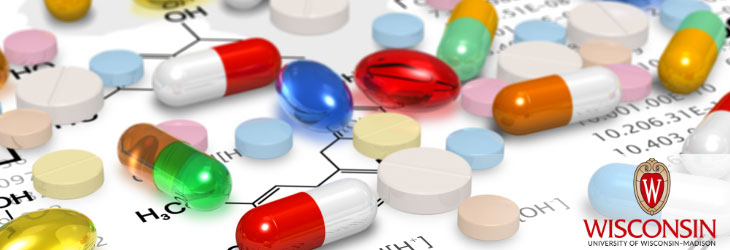Therapeutics & Vaccines

Anti-Anxiety Pharmaceuticals with Reduced Side Effects
WiSys: T02017US
Inventors: James Cook, Qi Huang, Xiaohui He, Xiaoyan Li, Jianming Yu, Dongmei Han
Overview
According to the National Institute of Mental Health, anxiety disorders affect approximately 40 million American adults. These chronic illnesses can severely decrease a patient’s quality of life. Anti-anxiety drugs, called anxiolytics, are used to treat central nervous system disorders, including anxiety disorders. The most frequently prescribed class of anxiolytics is benzodiazepines. This class of pharmaceuticals includes Valium, Xanax and others. These drugs reduce anxiety by binding to inhibitory neurotransmitters called gamma aminobutyric acid (GABA) type A receptors. However, benzodiazepines can cause significant side effects, including: drowsiness, dizziness, impaired memory, and decreased coordination. They can also lead to tolerance, dependence and abuse. There is a great and growing demand for new therapeutics providing relief for anxiety disorders without the debilitating side effects.
The Invention
A team of researchers at UW-Milwaukee have developed novel benzodiazepine derivatives that offer increased binding sensitivity at GABA type A receptors while decreasing the negative side effects associated with these therapeutics. These orally-active derivatives, and salts thereof, provide enhanced anxiolytic activity with little or no sedative, hypnotic or muscle relaxing effects. These compounds were found to reduce situational anxiety in rats without causing significant sedation, muscle relaxation or ataxic effects. These benzodiazepine derivatives offer hope for more effective treatment of anxiety disorders in the future.
Applications
- More effective pharmaceutical treatment of anxiety disorders
Key Benefits
- Minimizes adverse side effects
- Provides enhanced anxiolytic and anticonvulsant activity
- Reduces sedative, hypnotic, muscle relaxant and ataxic effects
- Can block pentylenetetrazole-induced seizures in rodents
Stage of Development
Compounds Isolated
Tech Fields
For current licensing status, please contact Jennifer Souter at [javascript protected email address] or (608) 316-4131